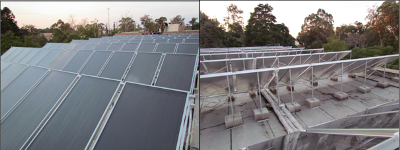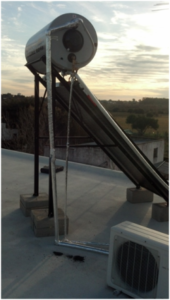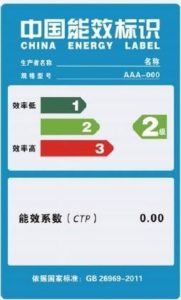Uruguay: Raising Awareness and Quality
May 3, 2014
 Uruguay’s solar thermal market is growing slowly, but it is growing – thanks to a residential subsidy scheme and a government decree. The scheme, which started in March 2012, has so far subsidised a solar water heater in almost 1,000 households with between 40 and 70% of the investment costs. The decree, Decreto No 451/011, stipulates a 50% solar hot water share in sport clubs, hospitals and hotels for both newly built and soon-to-be-renovated buildings, a move that has already helped to install several larger systems. The photos show a case study of a larger system installed on the roof of the Lawn Tennis Club in Montevideo. The flat plate collectors from company Alejandro Baroni were manufactured locally.
Uruguay’s solar thermal market is growing slowly, but it is growing – thanks to a residential subsidy scheme and a government decree. The scheme, which started in March 2012, has so far subsidised a solar water heater in almost 1,000 households with between 40 and 70% of the investment costs. The decree, Decreto No 451/011, stipulates a 50% solar hot water share in sport clubs, hospitals and hotels for both newly built and soon-to-be-renovated buildings, a move that has already helped to install several larger systems. The photos show a case study of a larger system installed on the roof of the Lawn Tennis Club in Montevideo. The flat plate collectors from company Alejandro Baroni were manufactured locally.
Photos: Andrés Eliseo Cabrera
The initial target was to have 2,000 homes equipped with solar thermal energy over the first two years (for more information, see the database of incentive programmes). Some of the biggest barriers in implementing the programme have been the modifications needed on the houses to install new water pipes and connections to existing pipelines. There is also a lot of misinformation among the population based on bad experiences with imported low-quality systems and the perception that the technology is too expensive.
Statements such as “Solar is a good idea, but the calculations are not interesting, as the savings do not cover the investment” or “It is better to use gas heaters, because you use less electricity, and it is easier to supply your home with gas” – or even “To put a black can on the roof is called solar energy?” – give an idea of the challenges of promoting solar energy across the country. It’s obvious that people still know very little about the benefits of such a system. It is important to add, however, that solar is a very new technology in Uruguay and there is strong competition from very cheap water-filled evacuated tubes from China.
The registration list of the regulatory authority for energy and water, URSEA, shows more than 20 companies that are eligible to sell and install solar water heaters under Plan Solar. Among these companies are two which produce their flat plate collectors locally (see the following pie chart). The majority of the suppliers (61%) import vacuum tube systems from China. One-fourth imports flat plate collectors from Europe and Israel. The authorised systems must fulfil a number of special technical requirements, one of them being a safety connection between the cold water inlet and the hot water outlet of the thermosiphon tank. This safety connection adds cold water in the solar circuit and prevents the solar heated water from reaching the electrical back-up heater at high temperatures, such as 80 or 90°C, which could damage the hydraulic equipment. It also prevents skin burning, because the safety valve of the electrical heater will not blow off.
 Categorisation of government-authorised solar system suppliers
Categorisation of government-authorised solar system suppliers
Source: URSEA
The state energy utility, UTE, has identified 100,000 families who could profit from Plan Solar. The use of electrical water heaters is responsible for 37% of their energy bill. Solar heat could, on average, substitute around 70% of the annual electricity consumption or what is the same to 26% on the total electricity costs.
To raise awareness and boost the image of solar thermal technology around the country, the network of institutions supporting Plan Solar has started an advertising campaign on Facebook. The marketing measures are said to be expanded into other areas, such as adverts on TV, the streets or the radio, as well as in newspapers, etc. Additionally, several public and private universities have been offering courses in regular intervals since 2009 and have been doing their homework when it comes to increasing the technology’s deployment. Therefore, national stakeholders are confident that the goal of 2,000 Plan Solar heaters will be reached soon.
More information:
This news was written by Eliseo Cabrera, Architect from Uruguay, (eliseocabrera@adinet.com.uy) Professor at the Faculty of Architecture of the ORT University and President of the Uruguayan Solar Chamber.


